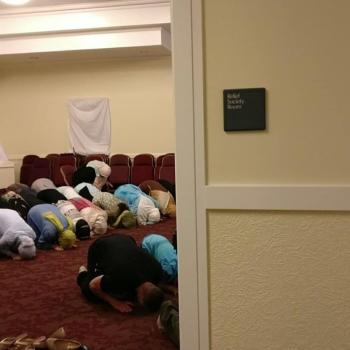
My latest bi-weekly column for the Salt Lake City Deseret News has now appeared:
***
I share here a fairly lengthy excerpt from Graham E. Fuller, A World Without Islam (New York, Boston, and London: Little, Brown and Company, 2010). Fuller probably isn’t exactly what would be termed a “bleeding-heart liberal” — as I myself certainly am not: He is a former CIA political analyst, as well as the former CIA station chief in Kabul, Afghanistan:
On the one hand, “they” — Muslims and others — do indeed hate us because of what we have done to them: invasions, colonies, empire-building, wars, coups, political, economic, and cultural domination, seizure and exploitation of resources, arrogance, lack of concern, failure to respect and understand non-Western cultures. We have heard these arguments before and there is a great deal of truth to them.
For those Americans who are uncomfortable in acknowledging any legacy of ongoing destructive and damaging US actions against the rest of the world, the temptation is to reply, “That’s right, blame America.” So we then search out self-serving and comforting answers: they “hate us for our freedoms,” they envy our wealth and our way of life, they prefer to blame the West rather than taking a hard look at themselves and their own shortcomings. And all of these arguments contain [a] grain of validity as well. But they basically don’t tell most of the story.
Whatever the roots of anti-Westernism may be, the phenomenon still remains a problem for the West and the United States. . . .
A combination of admiration, respect, fear, and anger characterizes the views of most developing nations toward the modern West and especially the US. The West is admired for its surge of economic and political development beginning in the sixteenth century. But it was specifically the West’s technological and military advancements that were responsible for thrusting the West out into the habitat of other civilizations. (144)
Fuller’s comment here, particularly the last paragraph cited above, should be read in conjunction with my recent blog post entitled “Do Arabs hate America?” in which I draw indirectly upon the data generated by Zogby International’s polling in the Arab world.















